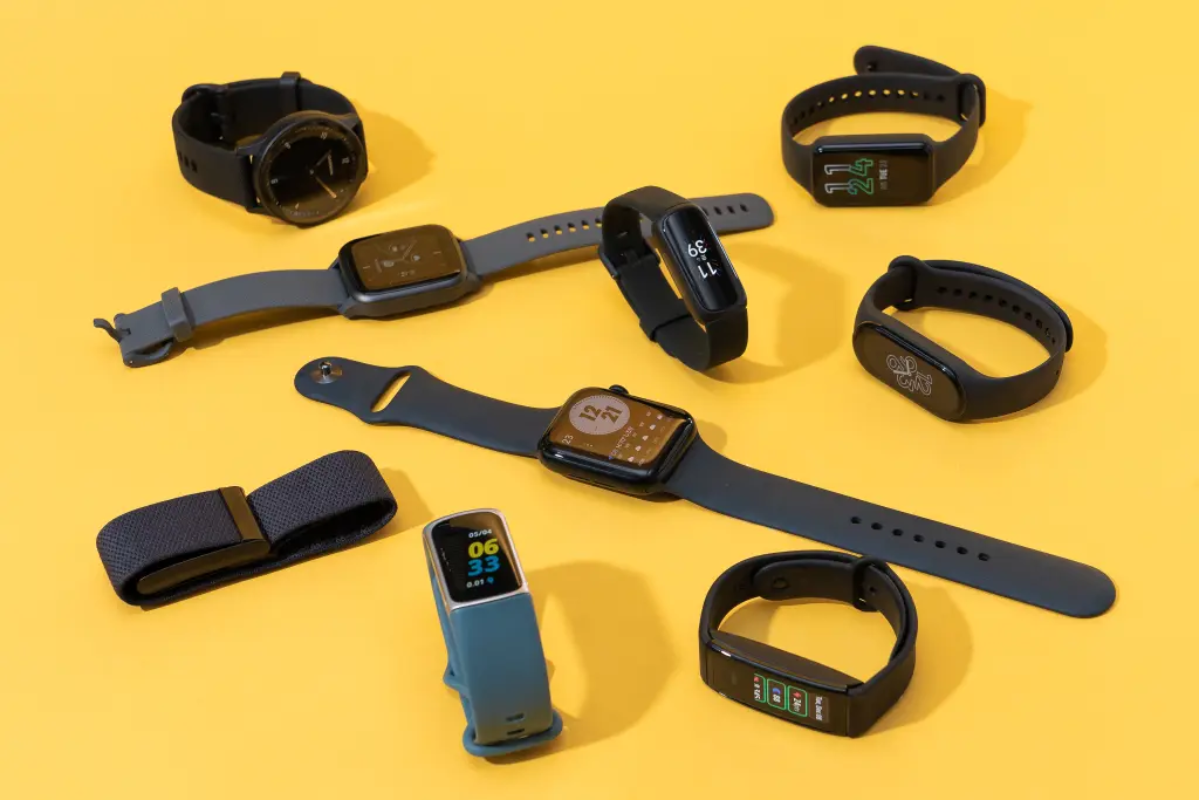The Best Fitness Trackers 2025
There has never been a better selection of fitness trackers, but with choice comes confusion. We’re here to help you narrow your options and find the best fitness tracker for your needs and budget. We’ve been reviewing fitness trackers for more than a decade and have tested each model below, considering factors such as accuracy, battery life, ease of setup and use, features, specs, and style before recommending it to you.
Fitbit Charge 6
The Fitbit Charge has long been among the most value-rich fitness trackers, and the sixth-generation model extends that legacy. It offers 40 sports profiles (up from 20 the previous generation) and a feature that lets you send your heart rate via Bluetooth to gym equipment. In addition, the Charge 6 has a color touch screen, a 5ATM water-resistance rating, multi-day battery life, a built-in GPS, sensors to monitor key overnight health metrics like skin temperature and SpO2, and support for on-demand ECG heart health and EDA stress readings. Though it’s primarily for fitness and health tracking, the Charge 6 features several Google lifestyle apps, including Google Maps, Google Wallet (which replaces Fitbit Pay), and YouTube Music. Its companion app clearly displays your data, and can be customized to highlight metrics related to your goal.
Apple Watch Series 10
The Apple Watch Series 10 offers a broad suite of built-in fitness, health, and safety tools, along with the best selection of third-party apps (such as AllTrails, Nike Run Club, Peloton, and Strava) for any smartwatch. This generation adds water depth and temperature sensors, features that debuted on the more expensive Apple Watch Ultra. It also features a larger screen and a slimmer case than its predecessor and a new lightweight titanium premium case option instead of stainless steel.
In testing, the Series 10 offered accurate workout pulse readings compared with a chest strap and a dedicated optical armband heart rate monitor. While many wrist-based optical heart rate trackers exhibit a slight lag when detecting rapid pulse change during workouts, Apple Watches tend to be spot on.
Its Activity, Exercise, and Stand rings can help motivate you to get moving, and its companion Fitness+ workout streaming service ($9.99 per month or $79.99 per year after a three-month trial) offers a variety of studio-style classes with excellent music and instruction for the home or gym. It goes beyond the basics with a multisport tracking option for triathletes and advanced running metrics such as real-time power, stride length, ground contact time, and vertical oscillation.
On the health front, it accurately tracks your activity, body temperature deviations, fertility windows, menstrual cycle, overnight respiration, sleep, and more. The Series 10 can alert you if it detects a high or low heart rate, irregular heart rhythm, and loud sounds that can damage your hearing. It also supports Emergency SOS and international emergency calling, as well as automatic calls for help if it detects a hard fall. We also appreciate its automatic 20-second handwashing timer.
Samsung Galaxy Watch 8
The Samsung Galaxy Watch 8 has the most wellness features of any smartwatch we’ve tested. Its Galaxy AI can build a guided running program for you or coach you to sleep better. When you wear the watch to bed and place a compatible smartphone on your nightstand, they can work together to listen for snoring and even record it. The watch also tracks your sleep duration, stages (awake, light, deep, and REM), and overnight SpO2.
For fitness tracking, the Galaxy Watch 8 supports more than 100 different workouts (everything from walking and running to archery and flying disc) and can automatically detect certain activities. It also gives you access to many third-party fitness, health, and sports apps via the Play Store, including C25K, Cardiogram, Golf GPS Rangefinder, Komoot, MyFitnessPal, Seven Minute Workout, and Strava. It can even measure your body composition, similar to a smart scale.
Fitbit Inspire 3
With long battery life, a color AMOLED touch screen, and all the basic activity and sleep features you need, the Fitbit Inspire 3 is one of the best fitness trackers you can get for less than $100. Unlike the pricier, jewelry-inspired Fitbit Luxe, its design screams basic, but we appreciate its bright screen that can stay on all day. The tracker’s simple interface and well-designed companion app make monitoring key fitness and health metrics easy, including your steps, heart rate, calories burned, sleep, overnight SpO2, and more. Despite a slight decrease in battery life compared with the previous model, it’s still the most affordable and long-lasting Fitbit.
Garmin Lily 2
Designed specifically for women, the Garmin Lily 2 stands out for its classic, jewelry-like design. It features a beautiful, patterned face, an aluminum bezel and case, and a 14mm quick-release band that’s much slimmer than most smartwatch straps, so you can wear it alongside other bracelets. More than just attractive, the Lily 2 can track health stats such as your calories burned, energy level, heart rate, respiration, sleep, SpO2, steps, stress, and workouts. It also offers smartwatch features such as phone notifications, music playback controls, and useful calendar and weather widgets. It’s water-resistant to 164 feet and can last up to five days on a charge.
